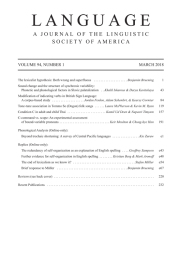While there are very clearly some structural constraints on pronoun interpretation, debate remains as to their extent and proper formulation (Bruening 2014). Since Reinhart 1976 it has commonly been reported that bound-variable pronouns are subject to a c-command requirement. This claim is not universally agreed upon and has recently been challenged by Barker (2012), who argues that bound pronouns must merely fall within the semantic scope of a binding quantifier. In the processing literature, recent results have been advanced in support of c-command (Cunnings et al. 2015, Kush et al. 2015). However, none of these studies separates semantic scope from structural c-command. In this article, we present two self-paced reading studies and one off-line judgment task which show that when we put both c-commanding and non-c-commanding quantifiers on an equal footing with regard to their ability to scope over a pronoun, we nonetheless find a processing difference between the two. Semantically legitimate but non-c-commanded bound variables do not behave like c-commanded bound variables in their search for an antecedent. The results establish that c-command, not scope alone, is relevant for the processing of bound variables. We then explore how these results, combined with other experimental findings, support a view in which the grammar distinguishes between c-commanded and non-c-commanded variable pronouns, the latter perhaps being disguised definite descriptions (Cooper 1979, Evans 1980, Heim 1990, Elbourne 2005).
Publication Type
- Article



